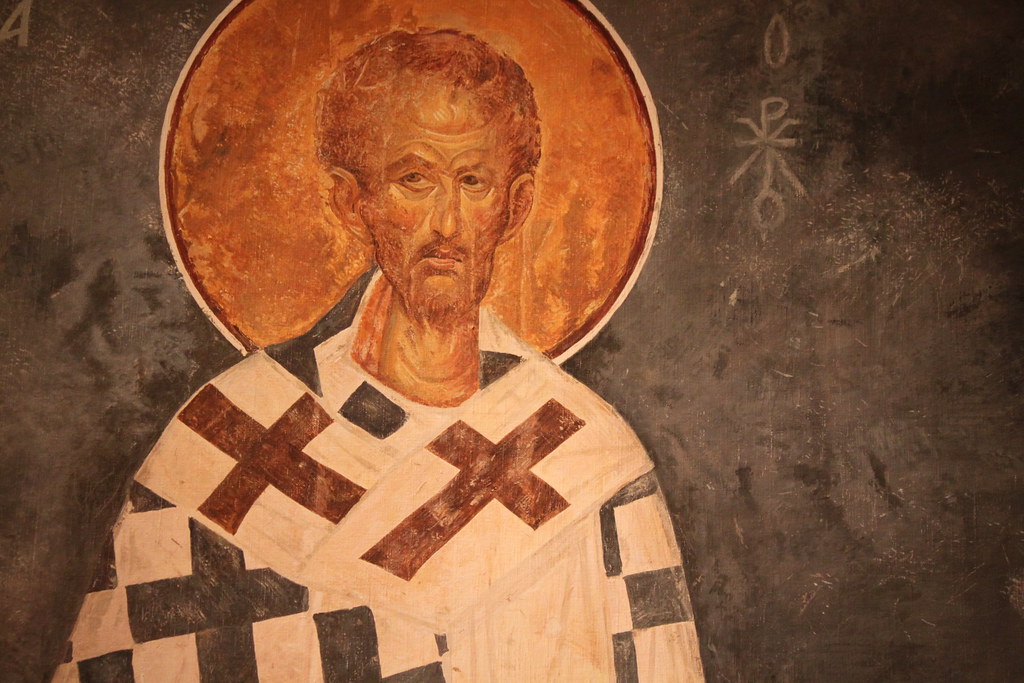Deacons likewise must be serious, not double-tongued, not addicted to much wine, not greedy for gain; they must hold the mystery of the faith with a clear conscience. And let them also be tested first; then if they prove themselves blameless let them serve as deacons.
I Timothy 3:8-10
The word “jurisdiction” in the Orthodox world refers to which hierarchical structure a church in a non-Orthodox country finds itself. There are no “jurisdictions” in Orthodox countries. In Greece, the Orthodox are all under the Church of Greece. In Russia, they are under the Patriarchate of Moscow. In America, there are many jurisdictions. The Greek Orthodox Archdiocese is under the Ecumenical Patriarchate of Constantinople, the Antiochian Orthodox Church is under the Patriarch of Antioch, etc. There are slight differences in practices and rubrics in the different jurisdictions. The theology is the same.
In today’s reflection, we will discuss the role of the deacon. In the Greek Orthodox Archdiocese, deacons are actually fairly rare. Many of us are unfamiliar with them. In other jurisdictions, there is a deacon in almost every parish, so those who are not Greek are probably very familiar with them. In many instances, someone is a deacon for a short amount of time as a stepping stone to the priesthood. In other cases, someone remains a deacon on a permanent basis.
Remember that the deacon is the second order of the clergy that came into being. And the purpose of the first deacons was to assist the Apostles in the daily distribution of food to orphans and widows. In contemporary times, the role of the deacon is to assist the priest in the Divine Services and also to take Holy Communion to the sick. In the Divine Services, especially the Divine Liturgy, the deacon is offering the petitions, and the faithful then offer the responses. The priest, in the Divine Liturgy, when a deacon is serving, offers the mystical prayers in the altar and it is actually the deacon who has most of the audible parts of the service. The deacon would read the Gospel, while the priest would offer the sermon.
The deacon cannot function independently of the priest or bishop. He cannot do a service alone. He cannot consecrate the Gifts. He can, however, distribute Holy Communion. In the Divine Liturgy, the deacon may offer Holy Communion, and outside of the Divine Liturgy, he may take Holy Communion to hospitals or homes for people who are sick. Deacons may also have a role in teaching and preaching with the blessing of the priest.
The word “deacon” in Greek is “Diakonos,” which means “servant.” The deacon then is not one who leads, but one who serves, one who assists the one who is leading, the priest or the bishop.
A person who is going to be ordained a priest must be a deacon for at least one day. And for those who are going to be married before ordination, they must be married before ordination to the Diaconate. A deacon will remain a deacon for as long as the bishop wishes for him to remain a deacon. If someone is destined to become a priest, the bishop probably won’t have him remain a deacon for long. Deacons who serve Hierarchs (bishops) are often called “Archdeacons” and they will remain a deacon for a longer period of time. Personally, I served as a deacon for a year, since I had the privilege to be the deacon to His Eminence Metropolitan Methodios of Boston.
In several jurisdictions, though not usually in the Greek Orthodox Archdiocese of America, there is the role of sub-deacon. A sub-deacon functions as an altar boy (though these are men, not boys), assisting the priest in the altar, but not participating audibly in the Divine Liturgy. The sub-deacon is not considered ordained clergy, does not offer Holy Communion, etc.
Going back to the vestments of the priest, the epigonation is a diamond-shaped vestment that is worn over the right knee. Epigonation literally means “on the knee.” This vestment is only worn by priests who have the title “confessor.” The diamond shape is supposed to represent a sword, which represents defense of truth.
Gird Your sword upon Your thigh, O mighty One, in Your glory and majesty! In Your majesty ride forth victoriously for the cause of truth and to defend the right; let Your right hand teach You dread deeds! Psalm 45:3-4
In some sense, we are all supposed to function as deacons, in the sense that we are supposed to be servants, serving God and serving one another.
